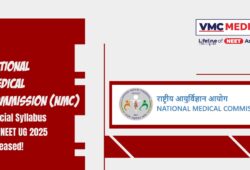Understanding Management Quota in MBBS Admissions: A Guide for Aspiring Doctors
 Posted On
Posted On
102 total views, 1 views today
As competition for MBBS seats in India intensifies, the management quota offers an alternative path for students aiming to pursue medical education. This quota is available exclusively in private medical colleges and is an important avenue for students who might not meet the cut-off for government quota seats. In this blog, we’ll break down how management quota seats work, including eligibility, benefits, drawbacks, fees, and application procedures.
1. What is Management Quota in MBBS?
Management quota refers to a set number of seats in private medical colleges that are allocated based on a different selection process compared to government and other reserved quotas. Typically, 15-25% of the total seats in private colleges are reserved under the management quota, although this percentage can vary based on state regulations and the policies of individual institutions. Unlike merit-based seats, the primary eligibility for these seats often includes fulfilling minimum academic and NEET (National Eligibility cum Entrance Test) score requirements.
2. Why Do Students Consider the Management Quota?
For students who aspire to pursue an MBBS degree but haven’t met the stringent cut-offs required for other quotas, the management quota provides a potential entryway. Here are some common reasons why students and parents consider this option:
- Relaxed Eligibility: Compared to government quota seats, the eligibility criteria for management quota seats can be less stringent. Although students still need to qualify for NEET, the required scores may be lower.
- Direct Admission Process: Management quota often provides a more streamlined admission route, helping students bypass the highly competitive merit-based allocation.
- Availability of More Seats: Due to the limited number of government medical seats, students who narrowly miss the cut-off might find it more viable to apply under the management quota.
- Flexibility in College Choice: Private medical colleges that offer management quota seats are often located throughout the country, giving students more choice in selecting their preferred institution.
3. Eligibility Criteria for Management Quota in MBBS
While eligibility criteria for management quota seats are relatively flexible, candidates must still meet a few basic requirements:
- NEET Qualification: All medical aspirants in India must qualify for NEET. The NEET exam is the minimum eligibility criterion for any MBBS admission in India, including management quota seats.
- Minimum Academic Scores: Candidates are generally required to have a minimum of 50% marks in their Class 12 exams in subjects such as Physics, Chemistry, and Biology.
- Age Requirement: Students must typically be at least 17 years of age by December 31 of the admission year.
Some institutions may have specific requirements for management quota seats, so it’s essential to check with individual colleges.
4. Fee Structure for Management Quota Seats
One of the biggest differentiators for management quota seats is the tuition fee structure, which is substantially higher compared to seats allocated through government quotas. Here’s an overview of what students and parents can expect:
- Higher Tuition Fees: In private medical colleges, the fee for management quota seats can range from INR 10-30 lakhs per annum or even higher, depending on the institution’s location and reputation.
- Additional Charges: Some colleges may have additional fees, including capitation fees (though regulated in many states) and charges for lab facilities, development fees, and hostel accommodations.
- Donation Fees (Where Permissible): Although donation fees are regulated, in certain cases, private institutions may still require a one-time capitation fee for admission under the management quota.
It is crucial for families to budget carefully, as the total cost for an MBBS degree through management quota can exceed INR 1 crore in some top private colleges.
5. Application Process for Management Quota Seats
Applying for management quota seats in MBBS is relatively straightforward but varies slightly across states and institutions. The general steps include:
- Qualifying NEET Exam: First, students need to ensure they have a valid NEET score that meets the minimum required percentile.
- Registering with the College or State Counselling Authority: Depending on the state, some management quota seats may be filled through centralized counselling (e.g., Karnataka or Tamil Nadu), while others require direct application to the college.
- Document Verification: Applicants must provide necessary documents such as Class 10 and 12 mark sheets, NEET scorecard, caste or domicile certificates (if applicable), and age proof.
- Payment of Fees: Once admitted, students must pay the management quota tuition fees upfront as required by the institution.
Since the process can vary, it’s advisable for students to visit the official website of the private medical college or the state medical council.
6. Advantages and Drawbacks of Management Quota in MBBS
Advantages:
- Accessible Alternative Path: Management quota provides an alternative for students unable to secure a government seat despite clearing NEET.
- Availability of Prestigious Institutions: Many private colleges with a reputable education standard and modern facilities offer seats under management quota.
- Flexible Admission Requirements: Students with lower NEET scores have an opportunity to pursue MBBS under management quota.
Drawbacks:
- High Cost of Education: The high fees associated with management quota seats can place a significant financial burden on families.
- Competitive Process: Although less competitive than the merit-based route, management quota seats in popular colleges can still see intense competition.
- Quality and Recognition Variances: Not all private medical colleges offer the same level of infrastructure, faculty, or clinical exposure as government medical colleges.
7. What to Consider Before Choosing a Management Quota Seat
When opting for a management quota seat in MBBS, students and families should consider the following factors:
- Accreditation of the College: Ensure the college is recognized by the National Medical Commission (NMC) to avoid issues with licensing and future practice.
- Long-Term Financial Impact: Since management quota seats are costly, families should assess whether the long-term financial commitment is sustainable.
- Location and Infrastructure: Choose a college with good infrastructure, clinical exposure, and accessible location.
- Career Plans Post-MBBS: Students who intend to pursue specialization or practice internationally should check whether their degree will be recognized abroad.
8. States with Prominent Management Quota Seats
Certain states in India have well-established systems for management quota admissions in private medical colleges. States like Karnataka, Maharashtra, and Tamil Nadu have a higher concentration of private medical colleges with management quotas. Students interested in applying in these states should review their respective policies, as each may have unique eligibility criteria, fees, and counselling procedures.
9. Frequently Asked Questions about Management Quota in MBBS
Q: Is NEET mandatory for management quota seats?
A: Yes, NEET is mandatory for all MBBS admissions in India, including management quota seats.
Q: Are management quota seats available in government medical colleges?
A: No, management quota seats are typically available only in private medical colleges.
Q: Can NRI students apply under management quota?
A: Yes, NRI students are eligible for management quota seats in most private medical colleges, but they may be required to pay a higher fee under an NRI quota.
Q: Is there any financial assistance for management quota seats?
A: Financial aid is limited for management quota seats, but some banks offer education loans for students enrolled in private medical colleges.
Conclusion: Is Management Quota the Right Choice for You?
Choosing the management quota route for an MBBS seat is a significant decision that depends on individual circumstances, academic performance, financial capability, and long-term goals. While the management quota offers a valuable alternative for students unable to secure government quota seats, it comes with high costs and specific considerations. Thoroughly researching colleges, understanding fee structures, and assessing your commitment to the MBBS journey can help in making an informed decision. For aspiring doctors who are passionate about their goal and equipped to handle the financial aspects, the management quota can be a viable option for securing a spot in medical education.



